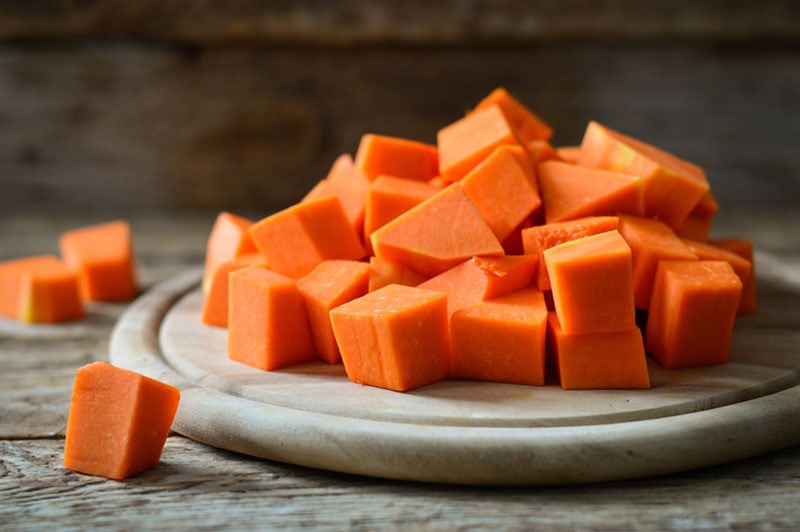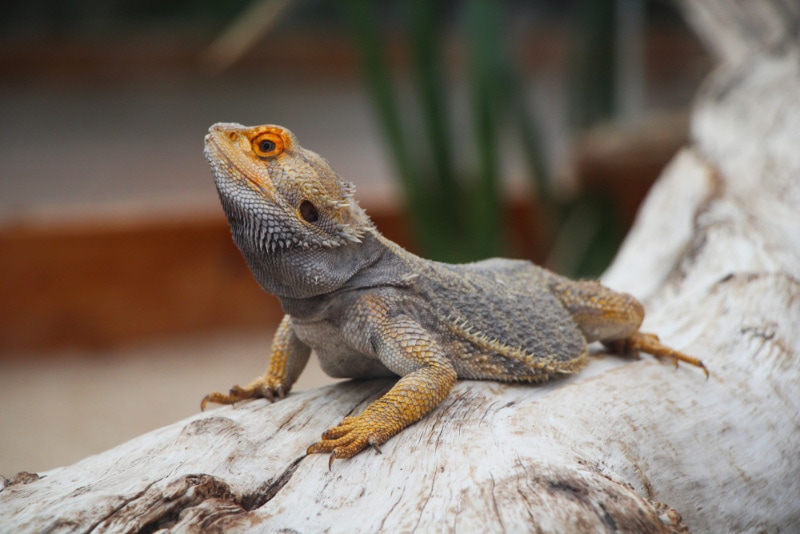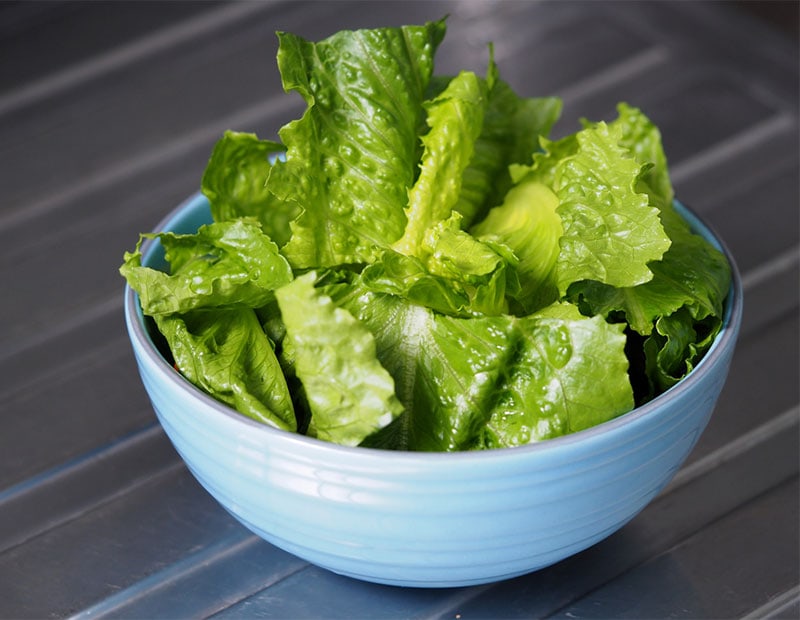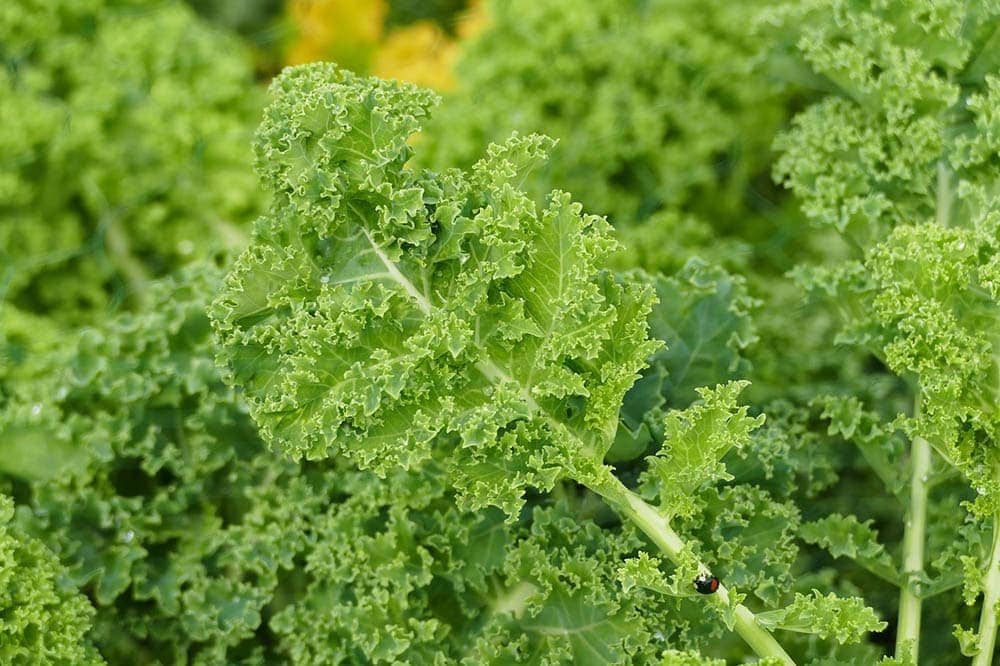Can Bearded Dragons Eat Pumpkin? Vet-Approved Facts & FAQ
Updated on

Click to Skip Ahead
Pumpkin and squash can make great foods for your bearded dragon, be it cooked and soft or raw and crunchy. All squash is high in fiber with additional nutrients that can help your beardie function beautifully and thrive. However, a balanced diet is key.
In this post, we cover how pumpkin fits into a bearded dragon’s healthy diet. We’ll also cover some other additional treats you can offer your beardie.
What Does a Bearded Dragon Eat Daily?
Bearded dragons are cold-blooded omnivores with strong jaws that help them crunch through fibrous plants and hard insect exoskeletons. Thankfully, beardies are generally not picky with their food options.
Young beardies are more insectivorous, meaning most of their diet should come from insect protein, so pumpkin may not be the best option for young bearded dragons.
The good news is that as baby beardies mature into adults, plants become about 75% 1 of their daily diet, depending on their age. Most of these should be leafy green vegetables and flowers.
- Collard greens
- Mustard greens
- Broccoli
- Turnip greens
- Dandelion
- Escarole
- Green beans
- Bell peppers
- Kohlrabi
- Parsley
- Kale
- Bok choy
- Alfalfa hay
- Watercress
- Clover
- Cabbage
- Savoy
- Cilantro
Fruit, pumpkin, and other squash should make up a lesser percentage of your bearded dragon’s diet—about 5%-10% of their daily diet is ideal. The rest of their food comes from commercial pellet food and any vitamin and mineral supplements.

Benefits of Pumpkin: Raw and Cooked
Pumpkin is only one type of squash amongst thousands, and it has some healthy benefits for bearded dragons. Pumpkin is loaded with vitamins such as vitamin C, vitamin A, and vitamin B6, as well as fiber. However, the amount of pumpkin that a bearded dragon should eat won’t provide much in the way of these healthy benefits. Instead, rely on vitamin supplements and other nutrient rich foods to ensure that your beardie is getting their required vitamins and fiber.
You can offer pumpkin either cooked or raw. Raw pumpkin has more nutrients than cooked pumpkin and offers a delicious crunch that bearded dragons love. However, cooked pumpkin is still acceptable,and a little easier, if you’re using plain canned pumpkin (not pumpkin pie filling).
What Are the Risks of Pumpkin?
In the wild, a bearded dragon would take care of themselves. However, since your beardie isn’t in the wild, it’s up to you to make sure they have a complete and balanced diet. That will require a healthy diet with a variety of vegetables, some fruits, and supplementation to ensure they get the vitamins and minerals they need. This is where pumpkin can become an issue.
Bearded dragons need a balanced diet of calcium and phosphorus. Ideally, this looks like a 2:1 ratio, so they need twice as much calcium than phosphorus.
The problem with pumpkin is that it contains more phosphorus than calcium—about a 1:2 ratio, so the exact opposite of what’s ideal for bearded dragons.. For example, 100 grams of pumpkin has 21 milligrams of calcium and 44 milligrams of phosphorus.
So, does this mean pumpkin is bad for beardies? Not exactly. You can feed your beardie pumpkin but do so sparingly. Prioritize the other leafy greens and flowers we listed above and offer pumpkin as an occasional treat.

What About Pumpkin Seeds?
Pumpkin seeds contain a compound called oxalic acid which can bind calcium and cause kidney stones. This makes eating a lot of pumpkin seeds a potential issue. Couple that with the hard, tiny seeds becoming a choking hazard, and you’re better off to not offer them to your bearded dragon in the first place.
Conclusion
Now you know the benefits and risks of pumpkin for bearded dragons. While there are a few nutritional benefits, it’s important to know that giving your bearded dragon pumpkin occasionally isn’t going to cause much issue and it can make a great treat.
Featured Image Credit: Pixabay












